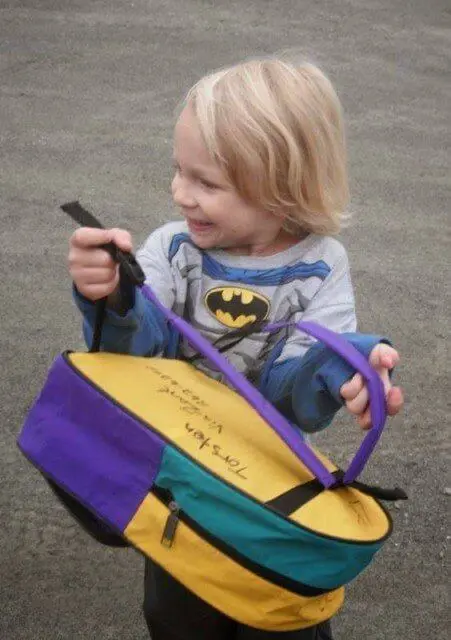 |
| Torsten on his first day or pre-school |
One of our toddlers has always had poor social skills and some severe separation anxiety. We knew that while separation anxiety in children is common, the combination could be crippling once he hit kindergarten, so finding a good preschool for him was important to us. It took some time, but finally that first day of school arrived. I’d gotten a fair amount of advice from other parents about just how to handle the drop-off point. Most told me to stand strong, just leave him, and let him work it out. I started to try that, but he screamed like he was being murdered and dropped to the floor. I couldn’t just leave his teachers with that, even though they told me it was OK. I stayed, and in the end, I was glad I did.
Seeing the alternative
Being there for a few hours that first day until my new preschooler was so enthralled in school he didn’t mind me leaving, I got to witness how other parent’s “just-leave-him” advice played out. There were other kids that were just as upset as mine was initially whose parents did just go. The teachers attempted to comfort them, but naturally, having 20 other preschools to deal with, they eventually left the children to cry it out. There was one little girl who was actually still sobbing in the corner when I left nearly three hours later who did not look like she was going to give it up. I certainly had no intent of staying every day, all day, all year, because that would undo the purpose of preschool, but I feel a few hours of my time was more than worth making his first day a happy one.
Easing the transition
Unfortunately, I did find my new preschooler wanted me to stay every day. So, I tried to leave a little earlier each day. It did help to explain to him why I was leaving earlier and to give him an object of mine, such as my necklace, that he could hold when he was missing me, but he still just wanted me to stay. I couldn’t just keep staying forever. In the end, I was unable to avoid a fit if I left right after dropping him off.
Using the bus
The answer to my conundrum finally came in a bus. Despite the bus stop being a mere five minutes before the school in my child’s case, we decided to give having him riding the bus a shot anyway. This did not put me at the school where he could want me to stay at all. It also put him in control. He was willingly getting on the bus rather than me saying, “You’re here, bye honey.” No more tears.
Some may view this method of sending a toddler off to preschool as “babying,” but by staying some of the time the first week my toddler was more comfortable with his teachers and the school setting. Then by giving him an item of mine he gained a sense of security, and finally, by letting him choose to ride the bus he conquered his separation anxiety. Our way might not work for every parent or every child, but it’s certainly a less tear-filled option to consider.

